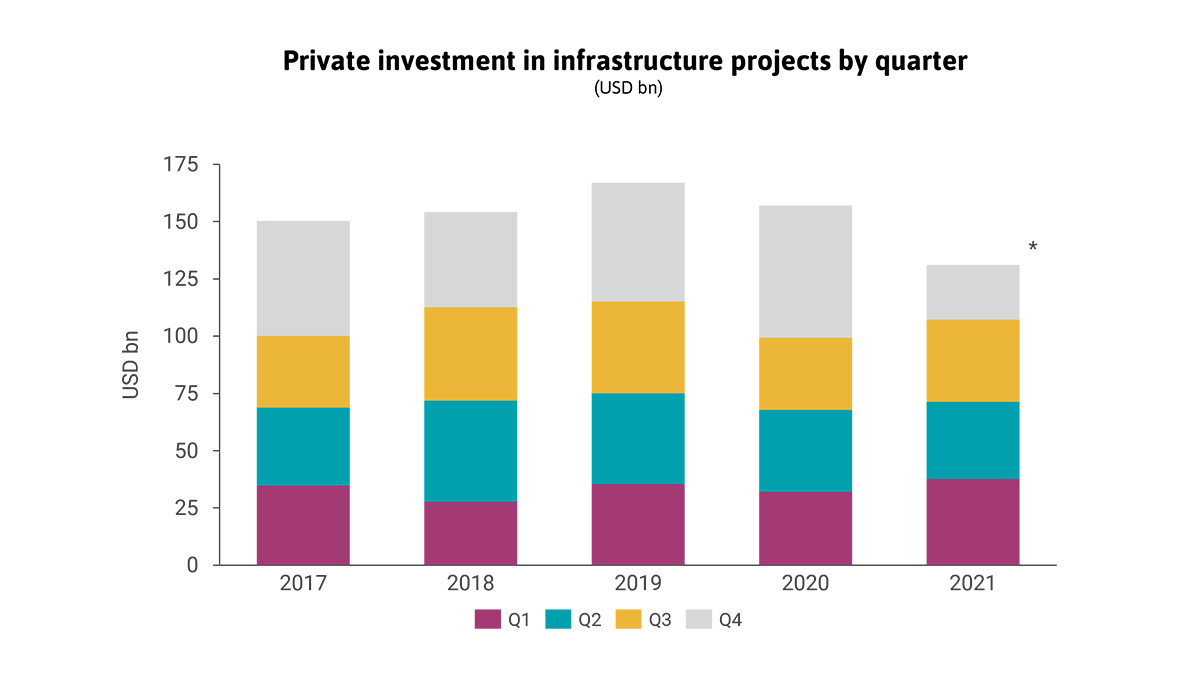1103 results found
Featured results



More results
The Solomon Islands National Development Strategy 2016–2035 called for greater use of renewable energy generation in the medium term, to service both urban and rural demand. It also called for opening the market to independent power providers.
Watch the seminar hosted by GI Hub in collaboration with the G20 Infrastructure Working Group (IWG) on Scaling up sustainable infrastructure investment by leveraging private sector participation, bringing together stakeholders from the public and private sectors, providing them with a platform to share their work and perspectives on how we can best address gaps in infrastructure investment
On 19 January, the Global Infrastructure Hub hosted a seminar in collaboration with the G20 Infrastructure Working Group (IWG) on ‘Scaling up sustainable infrastructure investment by leveraging private sector participation’.
Infrastructure NSW works behind the scenes to support these goals. Since 2015, one of our major tools has been the Infrastructure Investor Assurance Framework (IIAF).

Procuring agencies will assess the early contractor involvement (ECI) procurement model as part of the procurement options analysis on complex major infrastructure projects, where there is significant unknown scope, risks or interfaces, or a need for accelerated delivery timeframes.

Design-build has been used in the private sector for decades, particularly in the industrial and process industries (often known as EPC or engineeringprocurement-construction). In executing their designbuild projects, private sector owners typically contract with their design-builders early in the project’s life.

A set of practice note encourages a staged assessment of the potential benefits from delivery of an early works packaging strategy to be undertaken early in the planning phase on all major infrastructure construction projects.

This resource consists of a variety of options available to address the principle as applicable to the particular circumstances of a project.

This document explains the stages of project development and the level of detail that may be confidently provided to the public at each stage.

The policy framework for investment provides a systematic approach for improving investment conditions and a comprehensive checklist of key policy issues for consideration by any government interested in creating an enabling environment for all types of investment.

The framework provides a description of the job roles, capabilities and learning initiatives for professionals involved in project delivery.

Pension investment in infrastructure is moving mainstream, at a time when this move will have even greater potential to help drive positive impacts

AIFP equips African civil servants to effectively lead infrastructure project procurement and financing.



Private investment in infrastructure projects in primary markets was resilient to COVID-19 pandemic shocks


The global pandemic and climate change concerns raised at COP26 have elevated awareness of the need to build sustainable and resilient infrastructure, in tandem with implementing adaptation strategies and governance through innovative and collaborative partnerships between the public and private sectors
Low-income countries must maintain the necessary focus on basic goals such as improving energy access, providing safe and quality transport services, water, food security, and education - while forgoing opportunity, dealing with additional risks, and prioritising climate-smart investments.
In this session, the GI Hub provides an overview of our mission and mandate from the G20 and discusses two of the GI Hub’s key resources.
Emerging insights from Italy and its Next Gen EU implementation plans


Private investment in infrastructure projects in primary markets has been stagnant for seven years running


This webinar will explore how governments and project proponents can mobilise innovative forms of commercial financing like blended finance and sustainability-linked loans.






 Infrastucture Monitor
Infrastucture Monitor





